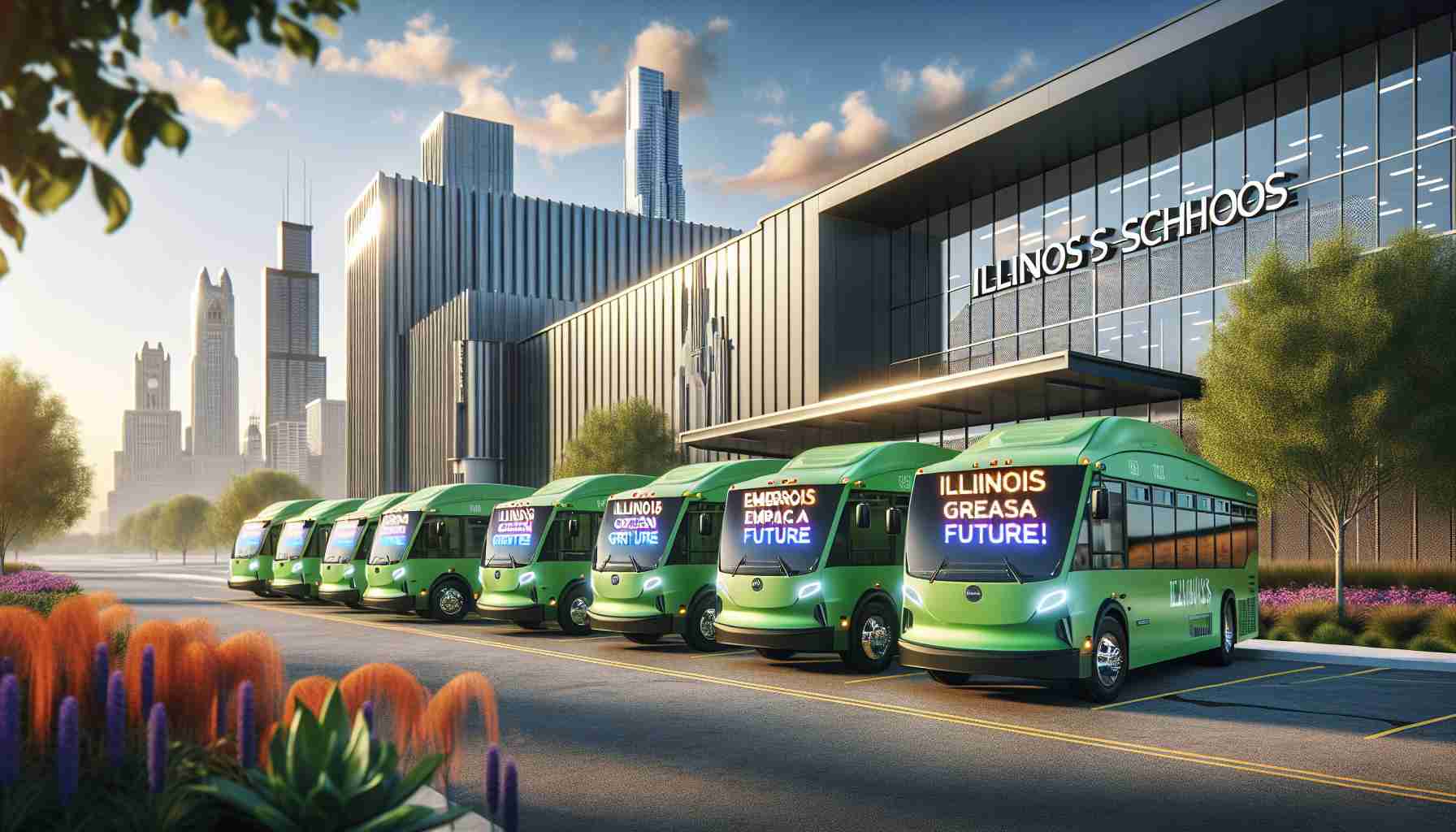
Illinois Leads in Electric School Bus Innovation
In a landmark initiative, Illinois is set to revolutionize student transportation, securing nearly $20 million to deploy electric school buses throughout nine districts. This funding is part of President Biden’s comprehensive Inflation Reduction Act aimed at fostering sustainable clean energy solutions.
On December 21, the Illinois State Board of Education (ISBE) proudly announced the allocation of $19.9 million destined for the procurement of 70 electric school buses. This significant grant, part of the Clean Heavy-Duty Vehicles Grant Program orchestrated by the Environmental Protection Agency (EPA), is designed to replace aging internal combustion engine buses, thereby enhancing air quality.
The robust investment will not only facilitate the rollout of electric buses but also expand necessary charging infrastructure. Additionally, workforce training programs are being established to equip staff with the skills to maintain and operate electric vehicle technology effectively. To further support this initiative, the ISBE will recruit new personnel to oversee the grant’s implementation and advance clean energy initiatives.
Governor JB Pritzker emphasized the importance of this funding in creating a cleaner, healthier environment for students and the community. The move is also expected to lead to substantial savings for school districts and taxpayers.
As Illinois embarks on this ambitious electrification journey, local schools are poised to benefit tremendously, with the first wave of electric buses set to hit the roads soon.
Illinois Paves the Way for a Sustainable Future with Electric School Buses
Illinois Leads in Electric School Bus Innovation
In an ambitious move towards greener transportation, Illinois is at the forefront of a national trend, harnessing nearly $20 million to deploy electric school buses across nine districts. This funding initiative stems from President Biden’s Inflation Reduction Act, aimed at enhancing sustainable energy solutions.
Key Features of the Electric School Bus Initiative
The Illinois State Board of Education (ISBE) announced that the state is set to receive approximately $19.9 million for the purchase of 70 electric school buses. This significant grant is a component of the Clean Heavy-Duty Vehicles Grant Program by the Environmental Protection Agency (EPA), targeting the replacement of older diesel buses with electric alternatives.
1. Environmental Benefits:
– The introduction of electric school buses is crucial for lowering greenhouse gas emissions and improving air quality, particularly in school zones where children are most vulnerable.
2. Infrastructure Development:
– The funding will also extend to charging infrastructure, ensuring that the electric buses can be maintained efficiently and reducing downtime.
3. Workforce Training:
– The initiative includes workforce training programs, equipping staff with the necessary skills to operate and maintain new electric vehicle technology.
4. Community Impact:
– Governor JB Pritzker underscored that this initiative represents a stride towards a cleaner, healthier future for both students and local communities.
Benefits of Electric School Buses
– Cost Savings: School districts can anticipate significant long-term cost savings due to lower fueling and maintenance costs associated with electric buses.
– Enhanced Student Health: Reducing pollution in school zones directly benefits student health and well-being.
– Job Creation: As new personnel will be recruited for the initiative, the program also fosters local job growth.
Limitations and Challenges
Despite these ambitious plans, the transition to electric school buses does come with its challenges:
– Initial Costs: While operating costs may decrease, the upfront investment in electric buses and necessary infrastructure can be substantial.
– Charging Infrastructure: Adequate charging solutions need to be in place to ensure that the fleet operates smoothly, which may require additional future investments.
Market Trends in Electric School Buses
The movement toward electric school buses aligns with a broader trend in the transportation sector, where electrification is becoming priority number one under various state and federal initiatives. Illinois’s commitment may inspire other states to follow suit, propelling further innovations in this field.
Future Predictions
– Increased Adoption: With the success of Illinois’s initiative, expect more states to adopt similar programs, leading to widespread use of electric buses across the nation in the coming years.
– Technological Advancements: Continued improvements in battery technology will drive further efficiencies and reductions in costs, making electric buses more accessible to school districts.
By leading in the electric school bus initiative, Illinois not only sets a precedent for others but also takes significant steps toward a sustainable, green future for student transportation and further societal benefits.
For more information on sustainability initiatives and electric vehicles in education, visit ISBE for updates and resources.



